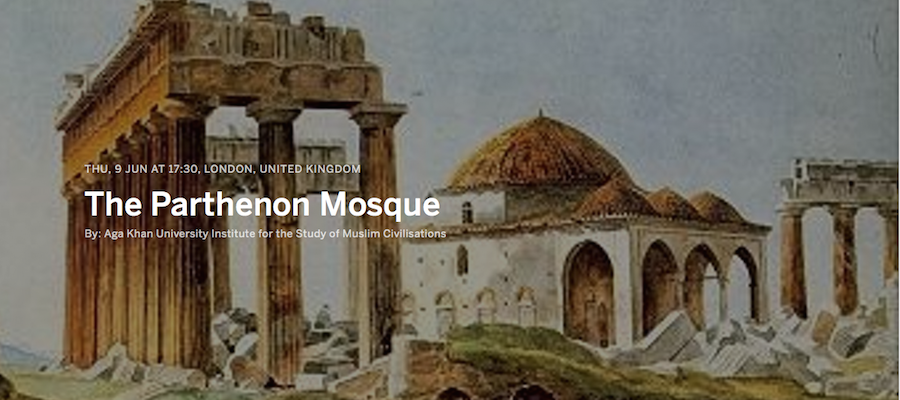The Parthenon Mosque, lecture by Elizabeth Fowden (University of Cambridge), Aga Khan University Institute for the Study of Muslim Civilisations, June 9, 2016, 5:30 pm
In writings and drawings, the Parthenon’s early modern viewers portrayed the Athenian built environment using interpretative tools ranging from the Qur’an, to Arab geographers and hagiographers, to ancient Greek and Latin authors, to European costume albums created in Istanbul and local legends colored by an inventive mix of myth and history. This talk will not only discuss material remains of the mosque, but also consider how European scientific impetus and Ottoman universalising historiography confronted a building infused over many centuries with the mirabilia and legends that had given it life. The Parthenon and its famous sculptures lay at the heart of an Athenian landscape populated by philosophers and prophets, where wonder and history were intertwined.
Dr Elizabeth Key Fowden is currently Gerda Henkel Stiftung Senior Researcher in the Faculty of Asian and Middle Eastern Studies at the University of Cambridge. Sparked by an early interest in Renaissance Italy, she studied Classics, specialising in late antique history and material culture in the Eastern Mediterranean and Middle East. Her PhD thesis, supervised by Peter Brown at Princeton University and later published as The Barbarian Plain: Saint Sergius between Rome and Iran (Berkeley 1999), examines religious, political and architectural crosspollination in late antique and early Islamic Syria. The after-life of artistic forms and religious ideas freed from their original contexts is a dominant theme throughout her teaching and research. In her current book project, The Parthenon Mosque, Fowden applies her interest in Islamic re-formulation of the Classical and Christian inheritance to the early modern conjunction of Greek, European and Ottoman views of Athens’ most celebrated building.
Registration required.
